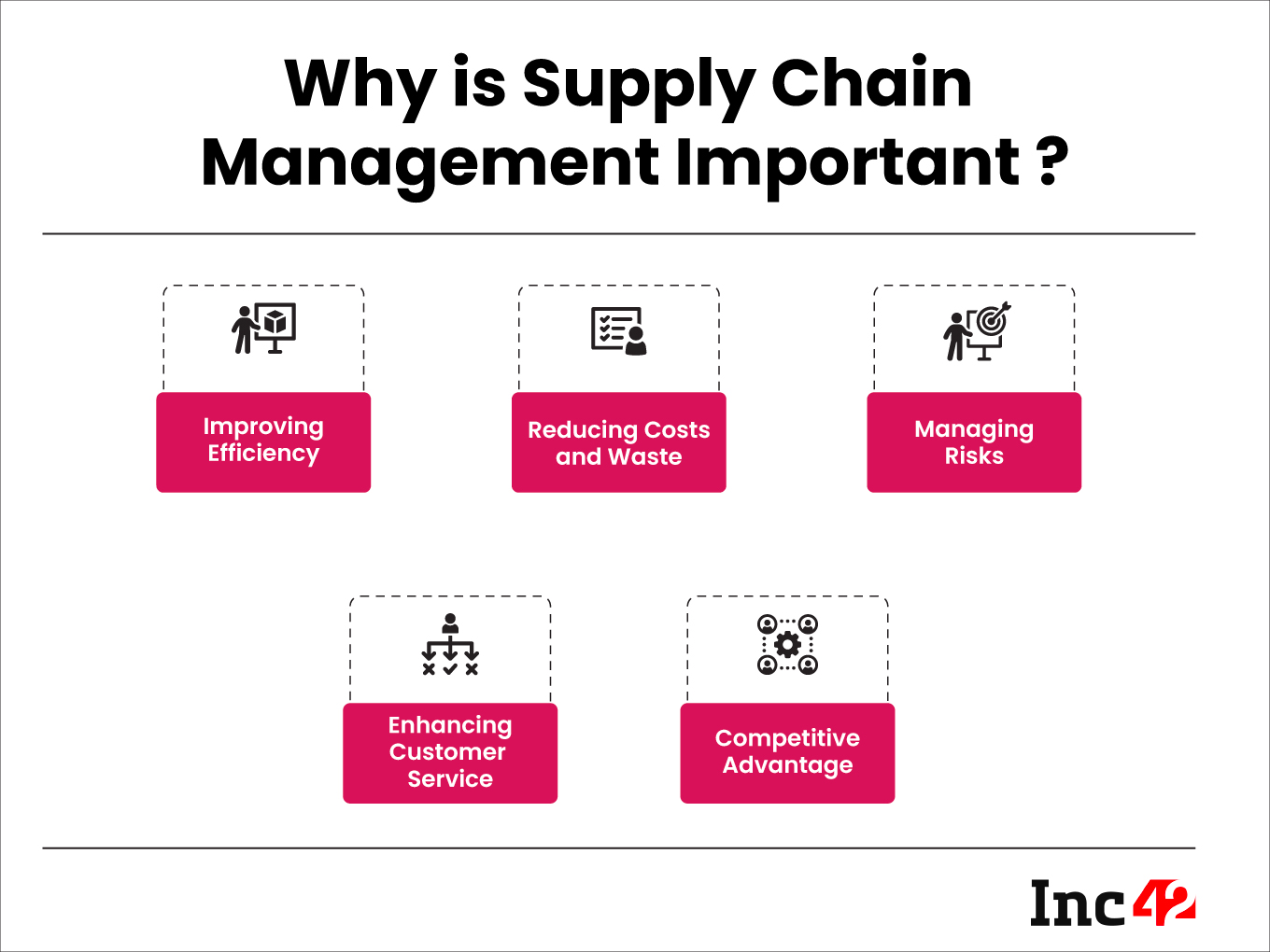What is Supply Chain Management?
Supply chain management (SCM) is the strategic orchestration of activities that encompass the planning, sourcing, manufacturing, distribution and customer service aspects of a product’s journey from inception to consumption. SCM seeks to optimise efficiency, reduce costs and enhance customer satisfaction throughout this intricate process.
Supply chain management can be categorised into various types:
- Lean Supply Chain: Focusses on minimising waste and maximising efficiency.
- Agile Supply Chain: Emphasises flexibility and responsiveness to changing market demands.
- Green Supply Chain: Aims to reduce the environmental impact by promoting sustainable practices.
- Reverse Supply Chain: Deals with the return and recycling of products and materials.
In addition, key function areas of supply chain management include:
- Planning: Forecasting demand, aligning production and scheduling resources.
- Sourcing: Selecting suppliers, negotiating contracts and managing relationships.
- Manufacturing: Overseeing production processes, quality control and efficiency.
- Distribution: Optimising the movement of goods, warehousing and transportation.
- Customer Service: Ensuring timely and accurate delivery, and addressing customer concerns.
What Is The Difference Between Logistics And Supply Chain Management?
Logistics is a subset of supply chain management that specifically focusses on the planning, implementation, and control of the efficient movement and storage of goods, services, and information within and between organisations. While supply chain management encompasses a broader spectrum of activities, logistics is a crucial component that ensures the seamless flow of products.
Why Is Supply Chain Management Important?
Effective supply chain management holds paramount importance for several reasons:

Cost Efficiency: Streamlining the supply chain reduces wastage, enhances resource allocation and lowers operational costs.
Customer Satisfaction: Efficient supply chain management ensures timely and accurate deliveries, enhancing customer satisfaction and loyalty.
Competitive Advantage: A well-managed supply chain can lead to faster time-to-market, giving businesses a competitive edge.
Risk Mitigation: Supply chain management identifies and addresses potential disruptions, minimising risks.
What Is Global Supply Chain Management?
Global Supply Chain Management
Global supply chain management pertains to the complex coordination of activities across international borders. It involves managing diverse regulations, customs, cultures and time zones to ensure a seamless flow of products.








